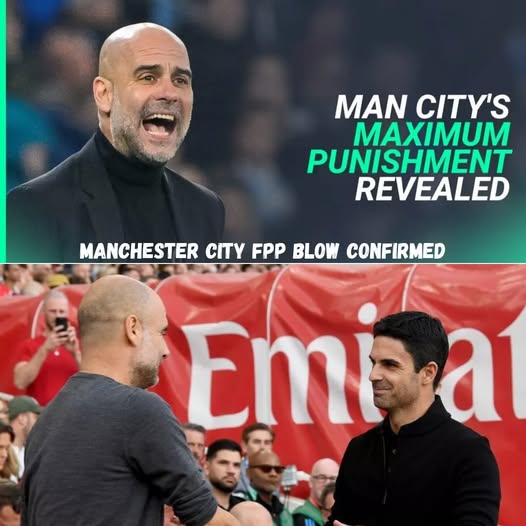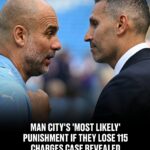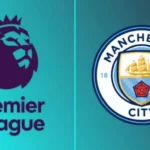Relegation, Points Deduction, Titles Stripped – Fresh Man City 115 Charges Punishment Verdict

The football world continues to hold its breath as Manchester City’s unprecedented case involving 115 alleged Financial Fair Play breaches remains unresolved. What began as a regulatory investigation has evolved into the most significant legal challenge in Premier League history, with potential consequences that could reshape English football forever.
The Scale of the Allegations
Manchester City stands accused of breaching Premier League Financial Fair Play rules more than 115 times between the 2009/10 and 2017/18 seasons. These charges represent the most comprehensive set of allegations ever leveled against a Premier League club, spanning nearly a decade of the club’s most successful period. The breadth and severity of these charges have cast a shadow over City’s remarkable achievements during this era, including multiple Premier League titles, domestic cups, and their historic Champions League triumph.
The charges encompass various categories of alleged misconduct, including failing to provide accurate financial information, breaching UEFA’s Financial Fair Play regulations, and not cooperating fully with Premier League investigations. The period in question coincides with City’s transformation from mid-table mediocrity to global powerhouse under the ownership of Sheikh Mansour and the Abu Dhabi United Group.
The Legal Process and Current Status
The hearing process has been extensive and complex, reflecting the gravity and intricacy of the case. A three-man independent panel heard evidence from both sides in late 2024, with the 12-week hearing concluding in December. However, despite initial expectations that a verdict would be delivered by spring 2025, the decision is now expected no earlier than summer 2025, with some sources suggesting it’s unlikely before the 2025/26 season begins.
This delay has frustrated stakeholders across the football community, from rival clubs seeking clarity to City supporters eager to move beyond the uncertainty. The extended timeline reflects the complexity of analyzing financial records, witness testimonies, and legal arguments spanning nearly a decade of transactions and operations.
Legal experts have noted that such delays are not uncommon in cases of this magnitude, where meticulous examination of evidence is crucial. The panel must consider not only the technical aspects of financial regulations but also the broader implications of their decision on the integrity of English football’s competitive structure.
Potential Punishments: The Range of Possibilities
The potential consequences facing Manchester City are unprecedented in Premier League history. According to Premier League rules, the sanction could be a points deduction, a fine or even expulsion from the Premier League. Possible punishments include significant fines, points deductions, or even – in the harshest scenario – potential relegation from the Premier League.
Points Deduction Scenarios
A points deduction represents one of the most likely outcomes if City are found guilty of significant breaches. The precedent set by recent cases provides some context for what might be expected. Everton received varying point deductions for their Financial Fair Play breaches, with an initial 10-point penalty later reduced to 2 points. However, City’s case involves far more charges over a longer period, suggesting any points deduction could be substantially more severe.
Football analysts and legal experts have speculated about potential point deductions ranging from 10 to 50 points, depending on the severity of proven violations. A moderate deduction might affect City’s European qualification prospects, while a severe penalty could see them relegated to the Championship regardless of their on-field performance.
Financial Penalties and Compensation Claims
Beyond sporting sanctions, City could face substantial financial penalties. The Premier League has the authority to impose fines commensurate with the scale of any proven breaches. These could potentially reach hundreds of millions of pounds, reflecting both the alleged financial advantages gained and the need for deterrent effect.
A number of clubs have filed paperwork reserving the right to seek compensation from City for loss of income derived from missing out on European competitions and league titles if the club are found guilty. This creates the possibility of additional financial liabilities running into billions if successful compensation claims are pursued by affected clubs.
The Nuclear Option: Expulsion
While considered the most extreme possible outcome, expulsion from the Premier League remains a theoretical possibility under the competition’s rules. Such a drastic measure would be reserved for the most serious breaches and would effectively destroy City’s status as a top-flight club. The practical implications would be staggering, affecting not only the club but also the broader football ecosystem, including broadcasting rights, commercial partnerships, and the competitive balance of English football.
Title Stripping Controversy
One of the most contentious potential consequences involves the retrospective stripping of titles won during the period of alleged breaches. While not explicitly mentioned in current Premier League sanctions, the possibility has been widely debated among fans, pundits, and legal experts. The complexity of redistributing historical achievements raises questions about sporting integrity versus practical implementation.
If titles were to be stripped, it would create unprecedented situations regarding record books, individual achievements, and the recognition of players and staff involved in those successes. The ripple effects would extend to associated records, statistics, and the historical narrative of English football during the 2010s.
Impact on English Football’s Landscape
The Manchester City case represents more than just a regulatory matter; it’s a defining moment for the future governance and competitive integrity of English football. The outcome will establish crucial precedents for how financial regulations are enforced and what consequences clubs can expect for violations.
Competitive Balance Implications
If severe sanctions are imposed, the immediate effect on Premier League competition could be dramatic. City’s potential absence from title contention or European qualification would fundamentally alter the competitive landscape, potentially benefiting rivals like Arsenal, Liverpool, Chelsea, and Manchester United.
The broader implications extend to squad stability, with potential player departures if City faces relegation or extended European competition bans. Star players might seek moves to maintain their international careers and Champions League ambitions, leading to a significant reshaping of the squad that has dominated English football.
Regulatory Precedent Setting
The case will establish vital precedents for future Financial Fair Play enforcement. A lenient outcome might be perceived as weakness in regulatory oversight, potentially encouraging other clubs to push boundaries. Conversely, severe sanctions would demonstrate the Premier League’s commitment to financial regulation enforcement, likely encouraging greater compliance across the league.
The decision will also influence how other competitions, including UEFA and domestic leagues worldwide, approach similar cases. The global football community is watching closely to understand how the sport’s most commercially successful league handles its most high-profile regulatory challenge.
Fan and Stakeholder Perspectives
The uncertainty surrounding the case has created significant anxiety and debate among various stakeholder groups. Manchester City supporters have largely maintained faith in the club’s innocence, pointing to the organization’s consistent denials and stated confidence in their evidence. The club are believed to be “totally confident” they will be “exonerated” and have said they have “irrefutable evidence” which proves their innocence.
Many City fans view the charges as an attempt by established football powers to undermine their success, arguing that the accusations stem from competitive jealousy rather than genuine regulatory concerns. They point to the club’s transformation of Manchester’s football infrastructure, community investment, and global success as evidence of positive ownership impact.
Rival supporters and neutral observers often hold contrasting views, seeing the charges as necessary accountability for alleged rule violations. They argue that financial fair play exists to maintain competitive balance and prevent unsustainable spending that could damage football’s long-term health.
Media and Pundit Analysis
Football media coverage has intensified as the case progresses, with daily speculation about potential outcomes and their implications. Former players, managers, and football executives have offered varying perspectives, reflecting the complexity and divisiveness of the situation.
Some argue that City’s success on the pitch should be separated from off-field regulatory matters, emphasizing that players and staff performed legitimately regardless of ownership decisions. Others contend that sporting achievements cannot be divorced from the financial framework that enabled them, particularly if rules were violated to gain competitive advantages.
International and Legal Ramifications
The case extends beyond English football’s boundaries, with potential implications for international competitions and legal frameworks. UEFA’s previous attempts to sanction City were overturned by the Court of Arbitration for Sport, creating precedents and legal strategies that may influence the current proceedings.
The relationship between different regulatory bodies and their enforcement mechanisms has come under scrutiny, with questions about jurisdictional authority and procedural consistency. The outcome could influence how similar cases are handled across different competitions and legal systems.
Broader Sporting Integrity Questions
The Manchester City case has sparked broader discussions about sporting integrity, ownership models, and the sustainability of modern football’s financial structures. Critics argue that current Financial Fair Play regulations are insufficient to address the complexities of contemporary football finance, while supporters contend that existing rules must be consistently enforced regardless of a club’s status or success.
The debate extends to fundamental questions about football’s direction: whether the sport should embrace unrestricted investment and market forces or maintain regulatory frameworks designed to preserve competitive balance and financial sustainability.
Economic and Commercial Consequences
The potential economic ramifications extend far beyond Manchester City itself. The club’s commercial partnerships, valued in hundreds of millions annually, could be significantly affected by severe sanctions. Sponsors and commercial partners typically include performance-related clauses and reputation protections in their agreements.
Broadcasting implications are equally significant, with Premier League television rights partially dependent on the league’s competitive appeal and integrity. The absence of one of the league’s most successful teams from top-flight competition could affect overall commercial value and global audience interest.
Player and Staff Implications
The uncertainty has already begun affecting City’s ability to plan for the future. Transfer negotiations, contract renewals, and strategic planning all operate under the shadow of potential sanctions. Key players may hesitate to commit long-term to a club facing possible relegation or extended European competition exclusion.
Coaching staff and management face similar uncertainties, with Pep Guardiola’s future at the club potentially influenced by the case’s outcome. The ripple effects could reshape not only City’s immediate competitive prospects but also their long-term strategic positioning in global football.
Looking Ahead: Timeline and Expectations
As the football world awaits the verdict, several scenarios remain possible. The decision is now unlikely before the 2025/26 season begins, with some suggestions that it could be delayed even further. This extended timeline has created additional uncertainty for all stakeholders, from players and staff to fans and commercial partners.
The complexity of the case suggests that whatever decision is reached will likely face appeals and further legal challenges. Both Manchester City and the Premier League have invested heavily in legal representation, indicating their preparation for extended proceedings regardless of the initial verdict.
Preparing for Multiple Outcomes
Manchester City must prepare for various scenarios while maintaining competitive focus. The club’s leadership has consistently expressed confidence in their position while also likely developing contingency plans for different potential outcomes. This dual approach reflects the gravity of the situation and the need to protect both sporting and commercial interests.
The Premier League similarly faces pressure to deliver a decision that upholds regulatory integrity while considering the broader implications for English football’s global reputation and commercial success. The balance between enforcement and commercial considerations represents one of the most significant challenges in the competition’s history.
Conclusion: A Defining Moment for Football
The Manchester City 115 charges case represents far more than a regulatory dispute; it’s a defining moment that will shape the future of football governance, competitive integrity, and commercial sustainability. The eventual verdict will establish precedents influencing how football is regulated, financed, and organized for years to come.
Regardless of the outcome, the case has already highlighted fundamental tensions within modern football between commercial success, regulatory compliance, and competitive fairness. These discussions will continue long after the verdict is delivered, as the sport grapples with balancing traditional sporting values against contemporary commercial realities.
The football community’s response to the final decision will be as significant as the verdict itself, determining whether the sport moves toward greater regulatory enforcement or experiences further fragmentation between different stakeholder interests. Manchester City’s case may well be remembered as the moment that determined the future direction of the world’s most popular sport.
As we await the panel’s decision, one certainty remains: the verdict will reverberate throughout football for generations, establishing principles and precedents that will influence how the beautiful game is governed, regulated, and enjoyed by millions worldwide. The stakes could not be higher, and the implications could not be more far-reaching for Manchester City, the Premier League, and football itself.















